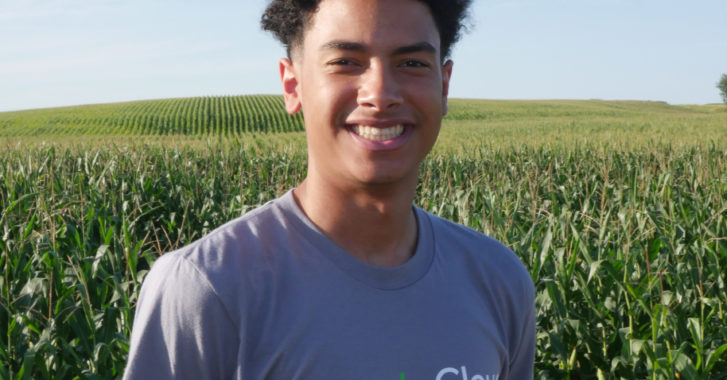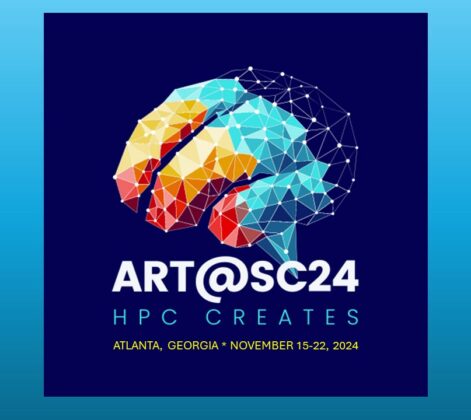By Trey Godbolt, Junior at the University of Iowa, Business Analytics program
Day 1:
The first day of the Practice & Experience in Advanced Research Computing (PEARC19) conference in Chicago, Illinois began with the car ride from Iowa City. I rode with Elizabeth Leake (STEM-Trek), and we picked up another student, Badisa Mosesane (University of Botswana), at the University of Illinois at Urbana-Champaign. Badisa was completing a three-month cyberinfrastructure internship at the National Center for Supercomputing Applications. After picking up Badisa, we all traveled to Oak Park, Illinois and the AirBnB we would stay at for the remainder of the trip. After dropping off our luggage, we went to the Hyatt Regency in Chicago for the Student Program Opening; a brief orientation to the conference.
Day 2:
This was my first full day at PEARC19. I was scheduled to work as a student volunteer for the session titled, “Pragmatic Science Engagement Using an Operations Center Approach.” As a volunteer, it was my duty to ensure the session speaker had everything they needed for a successful presentation. Volunteer duties included making sure the equipment was working right, taking attendance, handing out packets, and other miscellaneous tasks. Following that session, everyone was served a lovely lunch with options for nearly every diet restriction. After lunch, I attended the STEM-Trek AI4GOOD@PEARC19 session. The basis of this workshop was to discuss how artificial intelligence (AI) is used for the benefit of society. Some people automatically associate AI with being inherently wrong, but with correct implementation, AI can be a tool to significantly improve the quality of life for all.
As a member of the student program at PEARC19, I was invited to attend a mentor dinner. The conference committee matched each student with a mentor who was an established professional in an area that the student was interested in. I was lucky enough to receive two mentors. My first mentor is Ryan Quick who was the architect behind both PayPal and eBay before starting his own business, Providentia Worldwide, a company whose goal is to bridge the gap between High-Performance Computing and Enterprise Hyperscale computing. My second mentor is Dirk Colbry, Director of High-Performance Computing (HPC) Studies in the Department of Computational Mathematics, Science and Engineering at Michigan State University. Both Dirk and Ryan will be beneficial mentors since I want to combine my Finance major with HPC. Following the mentor dinner, a group of coworkers and I went out to a team dinner at a Peruvian restaurant named Tanta. I have never had Peruvian food before, and I was able to try seven foods that I have never tasted before.
Day 3:
On Tuesday, the day began early with the conference, “Plenary Session A.” All participants were welcome to attend this session.
The next session I attended was titled, “Python or R or Both: Tools for Your Data Analytics Workflow.” This program was run by a coworker of mine, Kang Lee (U-Iowa Research Services), and Samuel Burer (U-Iowa, Management Sciences). Attendees learned when it was appropriate to use Python versus R. I was also a volunteer for this session and helped take attendance and pass out an informational packet to guests.
After lunch, I attended a tutorial titled, “Accelerating Data Science Workflows with RAPIDS.” RAPIDS is an Nvidia project that improves data science and data analytics performance. This event concluded the main events for the day; however, there was a Student/Exhibitor Speed Networking program that evening. Sixteen exhibitors hosted tables where students who were enrolled in the PEARC student program could briefly meet representatives from tech companies and other agencies that hire technical personnel. I believe this program was one of the most beneficial PEARC activities; where else can you meet hiring managers from so many tech companies in a short period of time? Since most students attending the conference were graduate students, coming into the networking event as an undergraduate gave me a unique perspective. Some of the representatives offered advice on my career while others informed me about internships and jobs available at their respective companies. In retrospect, this was one of my favorite days at PEARC19.
Day 4:
This day began with “Plenary Session B” which was a glimpse into the future of HPC. Following Plenary Session B, I attended a session called, “Facilitate Machine Learning Adoption.” The meeting was a combination of three papers: “Traps, Pitfalls, and Misconceptions of Machine Learning applied to Scientific Disciplines,” “Publishing and Serving Machine Learning Models with DLHub,” and “Open Compass: Accelerating the Adoption of AI in Open Research.”
My favorite paper was the “Open Compass: Accelerating the Adoption of AI in Open Research.” The article mainly covered the various ways that researchers can use AI to the betterment of their research.
After the paper session was the Student Mentor Lunch. Students dined with their mentors again, and were able to develop a closer bond with them. The lunch was terrific, with a wide variety of options.
After lunch, I volunteered for another paper session called CyberInfrastructure Skill Development I. At this session, three more papers were presented. I was able to see one of my mentors, Dirk Colbry, present his paper on “The CyberAmbassador Training Program.” Through this program, CyberInfrastructure professionals can develop skills necessary to facilitate computationally-intensive research. It was interesting for me to see Dirk present his paper as I had only previously seen him in informal settings.
The last research-related event of the day was the Project Management/Soft Skills paper. I believe having people skills is beneficial no matter what industry a person goes into. To make advancements in your career, it is essential to learn how to talk to people and manage a team.
The day concluded a baseball game at Wrigley Field: Chicago White Sox vs. New York Mets. It was intended to serve as an opportunity to meet fellow conference attendees in a more relaxed environment. This was one of the most enjoyable experiences at the conference.
Day 5:
The last day of PEARC19 was only a half-day of events. I was a volunteer for a paper session for Data Science. The first paper was “Undergraduate Data Science and Diversity at Purdue University.” Representatives from Purdue talked about their goal of advancing “Big Data” opportunities for undergraduates. The second paper was “Mining Online Training Log Data.” Susan Mehringer from Cornell University spoke about using logs from over ten years of research to analyze the usage of their HPC environment. I believe every center should analyze past logs in order to better predict the future use of their center.
The last paper was on “DeapSECURE: Empowering Students for Data- and Compute-Intensive Research in Cybersecurity through Training.” It is essential to train students while they are in school so they’re better-prepared for technical careers and reduces the need for training after graduation should they decide to continue the path of Advanced Research Computing. Otherwise, it’s difficult for students to gain real-world experience in Advanced Research Computing on their own.
Takeaways:
Overall, I believe PEARC is a beneficial conference for students interested in the Advanced Research Computing field and even for professionals who are already in the field. Students can compete in various events during the conference to showcase their skills to future employers. Professionals in the field can share ideas with each other for mutual gain. There are numerous opportunities to network with other students and professionals. This allows students to improve their communication skills and introduces them to experienced mentors who can answer their questions. Students will find employment and internship opportunities at the conference since so many prospective employers attend. As a student volunteer, I was able to meet the presenters and develop a relationship with them that I would not have had otherwise.
I want to thank STEM-Trek Nonprofit and Google for making it possible for me to attend this life-changing conference. I hope to attend PEARC20 next year to learn even more about Advanced Research Computing.
Read Hawkeye Baylen Brus‘ PEARC19 blog!





